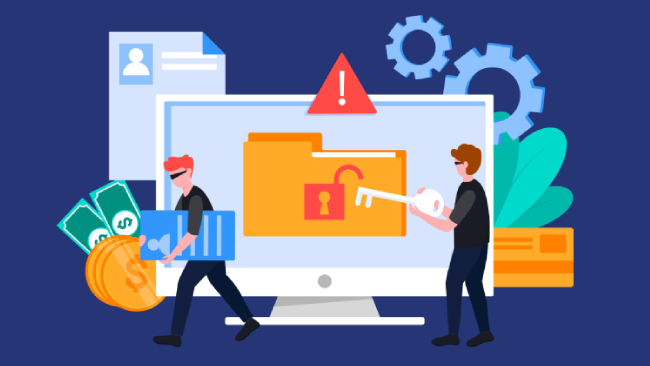In today’s interconnected world, protecting your business from a data breach has never been more critical. With companies increasingly relying on technology for operations, the risk of sensitive information falling into the wrong hands is a constant threat.
Data breaches can lead to significant financial losses, damage to reputation, and legal consequences. Therefore, securing your business’s data is imperative. So, let’s outline six effective strategies to safeguard your business from these cyber threats, which include investing in cybersecurity solutions, educating your employees, implementing strong passwords, and regularly backing up data among other effective measures.
1. Educate Your Employees
The first line of defense against data breaches is your employees. Human error is one of the most common causes of security incidents. It’s essential to regularly train staff on the importance of cybersecurity. This includes recognizing phishing scams, using strong passwords, and understanding the company’s IT policies. By fostering a culture of security awareness, you can significantly decrease the risk of accidental breaches.
It is also important to provide staff with regular updates on the latest security trends and threats, with regular security audits conducted to ensure that security measures are up-to-date and that staff members are following the correct procedures.
2. Implement Strong Access Controls
Access controls are crucial for protecting sensitive data. Ensure that employees can only access the information necessary for their roles. This not only minimizes the risk of internal data misuse but also limits the damage if an employee’s account is compromised. Using tools like multi-factor authentication (MFA) can add an extra layer of security, making it harder for attackers to gain unauthorized access.
3. Regularly Update and Patch Systems
Cyber attackers often exploit vulnerabilities in outdated software to access company networks. Keeping your systems, applications, and security software up-to-date is a straightforward yet effective way to protect your data. Regular patches and updates close these security gaps, reducing the risk of breaches. Implementing a scheduled update program can help streamline this process and ensure that no critical system is left vulnerable.
4. Secure Your Networks
Securing your network is a critical step in safeguarding your data. Use firewalls to block unauthorized access to your networks and encrypt sensitive data both in transit and at rest. Additionally, secure your Wi-Fi networks by using strong encryption settings and hiding the network name (SSID) from public view. This prevents unauthorized users from easily discovering and accessing your wireless network.
A secure network will also regularly update software and firmware to patch any vulnerabilities that could be exploited by cyber attackers. Regularly monitoring network activity and implementing multi-factor authentication can also enhance security measures to protect against potential threats.
5. Plan for the Worst with Regular Backups
Regular backups are a safety net in the event of a data breach. By maintaining up-to-date backups, you can restore lost data quickly and minimize disruption to your business. Ensure these backups are stored in a secure location and are accessible only to authorized personnel. Regular testing of backup integrity is also essential to ensure they can be effectively restored when needed. Consider enlisting services like Corodata records management company to manage and protect these backups professionally.
6. Conduct Regular Security Audits
Regular security audits help identify and rectify vulnerabilities before they can be exploited. These audits should assess all aspects of your security infrastructure, including policies, compliance, endpoint security, and response strategies. Hiring external cybersecurity experts for these audits can provide an unbiased view of your security posture and offer valuable insights into enhancing your defenses.
Ultimately, investing in regular security audits can help identify vulnerabilities and prevent potential breaches that would harm your company. By staying proactive and continuously improving your security measures, you can stay one step ahead of cyber threats.
Protecting your business from a data breach requires a multi-faceted approach. By educating employees, implementing strong access controls, keeping systems updated, securing networks, planning with backups, and conducting security audits, you can create a robust defense against cyber threats. Remember, the goal is not just to protect data but also to maintain trust with your clients and ensure the longevity of your business. Start taking steps today to secure your business for a safer tomorrow.




Raul
Great insights! Implementing proactive measures like encryption and regular security audits can definitely fortify our business against potential data breaches.